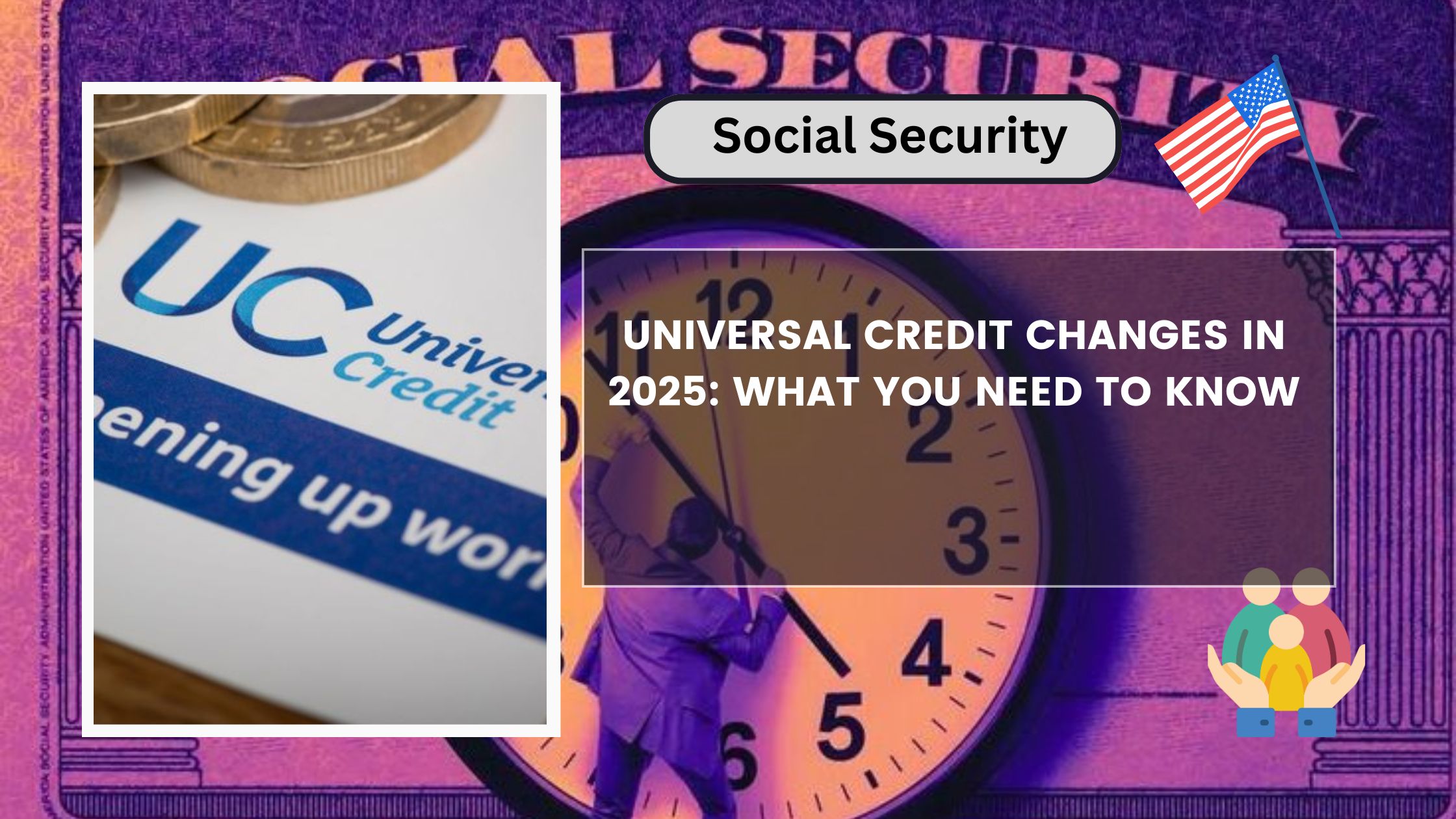Affecting millions of applicants, the UK government is changing Universal Credit significantly for 2025. Work requirements, eligibility criteria, and payout amounts will all change with these modifications. If you rely on Universal Credit for financial support, you should be aware of how these developments will effect you. Everything you need to know about the Universal Credit adjustments in 2025 is broken out below together including important updates and how they could affect your benefits.
Universal Credit: What is it?
Aimed to assist low-income people and families with living expenses, Universal Credit is a federal welfare benefit Six previous benefits—jobseeker’s allowance (JSA), income support, housing benefit, working tax credit—are replaced. Paid monthly, it changes depending on your income, job status, and living arrangement.
New laws and payment revisions set for 2025 will affect Universal Credit’s operation. These adjustments seek to support individuals in need as well as inspire more people to work.
Important Changes for Universal Credit in 2025
1. Improved Universal Credit Payments
The rise in universal credit payments is one of the largest changes for 2025. The government has assured us that benefits will increase to correspond with inflation, therefore giving claimants more money to help with the growing cost of living.
- Standard Allowance Increase: Couples and single applicants will have their monthly payments rise, therefore guaranteeing sufficient financial support.
- People who work while claiming Universal Credit might also see a greater work allowance, allowing them to retain more of their income before benefits are deducted.
2. Enhanced Work Standards
Universal Credit guidelines are becoming tighter for jobless applicants under government direction. Encouragement of more people finding employment or working longer hours is the aim.
- More Frequent Work Coach Meetings: Should you be unemployed, you can be asked to meet with a work coach more frequently to go over employment prospects.
- Stronger Sanctions: Should applicants reject employment offers, fail to show up for job interviews, or fall short of work-related requirements, they may have temporary benefit bans or payment reduction.
- More Support for Parents: Universal Credit recipients will have easier return to work since they will get more assistance with childcare expenses.
3. Change in Housing Benefits
One component of Universal Credit is a housing element meant to assist renters in payment. Some developments in 2025 will impact the level of housing support individuals get.
- Higher Local Housing Allowance (LHA) – To match growing rent rates, the government is supposed to boost housing allowances.
- More Rules for Shared Housing: Young applicants under 35 could have fresh limitations on how much rent they can claim, therefore promoting shared housing options.
4. Simpler Universal Credit access for those with disabilities
Improvements in 2025 will help those claiming disability benefits to more easily receive support.
- Simplified Health Assessments: The government wants to cut the quantity of medical tests required to be eligible for Universal Credit linked to disabilities.
- greater Payments for Severe impairments: To help with extra living expenses, those with long-term illnesses or severe impairments may get a greater Universal Credit payment.
These Changes Will Most Affect Who?
Various categories will be affected differently by these Universal Credit revisions:
- Stricher job search guidelines mean that unemployed applicants must actively seek employment or face losing benefits.
- Working claimants can make more before benefits are deducted thanks to rising work allowances.
- More help with childcare will enable parents to obtain employment more quickly.
- People with disabilities: Higher payouts and simpler access to benefits will boost financial support.
- Renters: Improved housing support will come from rising Local Housing Allowance, although young applicants could have to deal with new shared house policies.
Conclusion
Many people will be affected by the changes in Universal Credit in 2025; new work criteria, improved housing and disability support, and benefits will all alter. If you get Universal Credit, keep informed and know how these changes would impact you. Although many households will benefit from the higher payouts, tougher job-seeking regulations imply applicants must be more active in their hunt for employment. Early preparation helps you to guarantee that you will always get the correct financial support free from interruptions.
